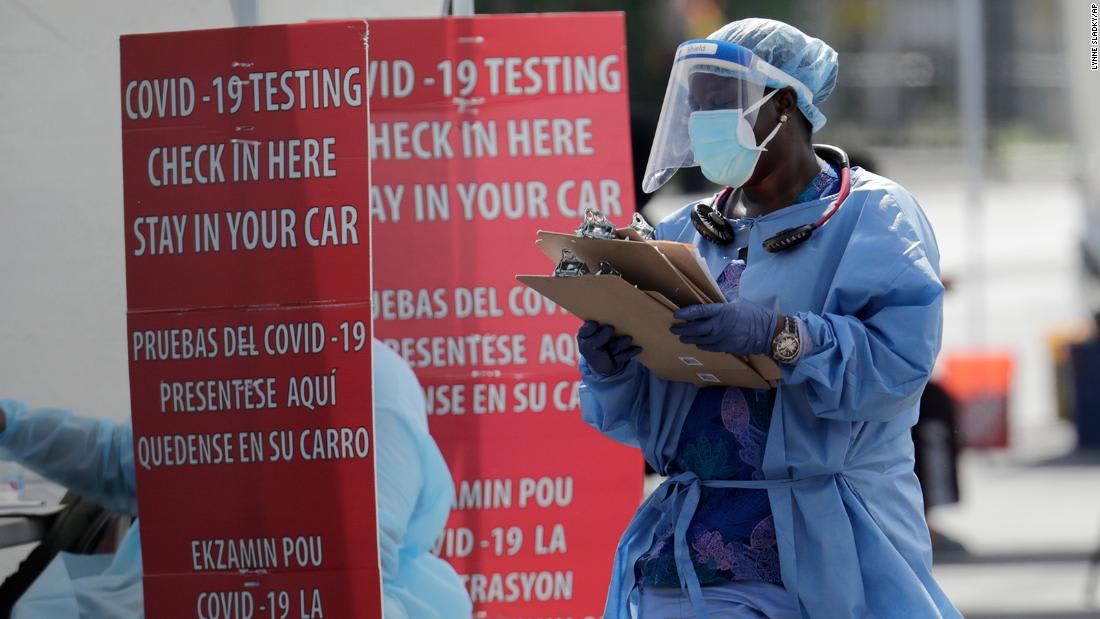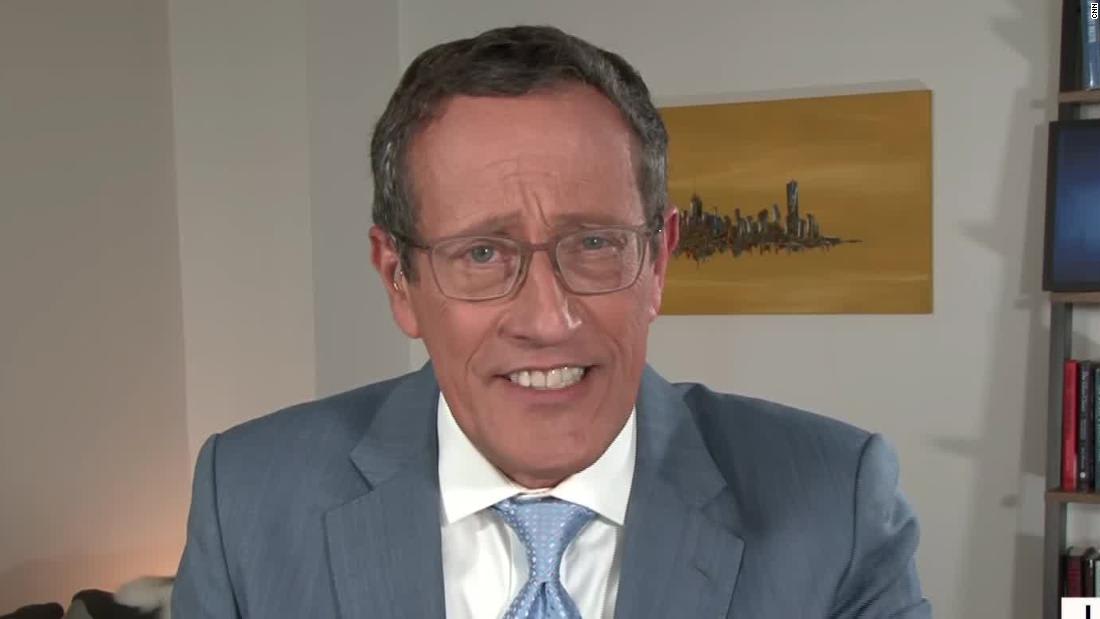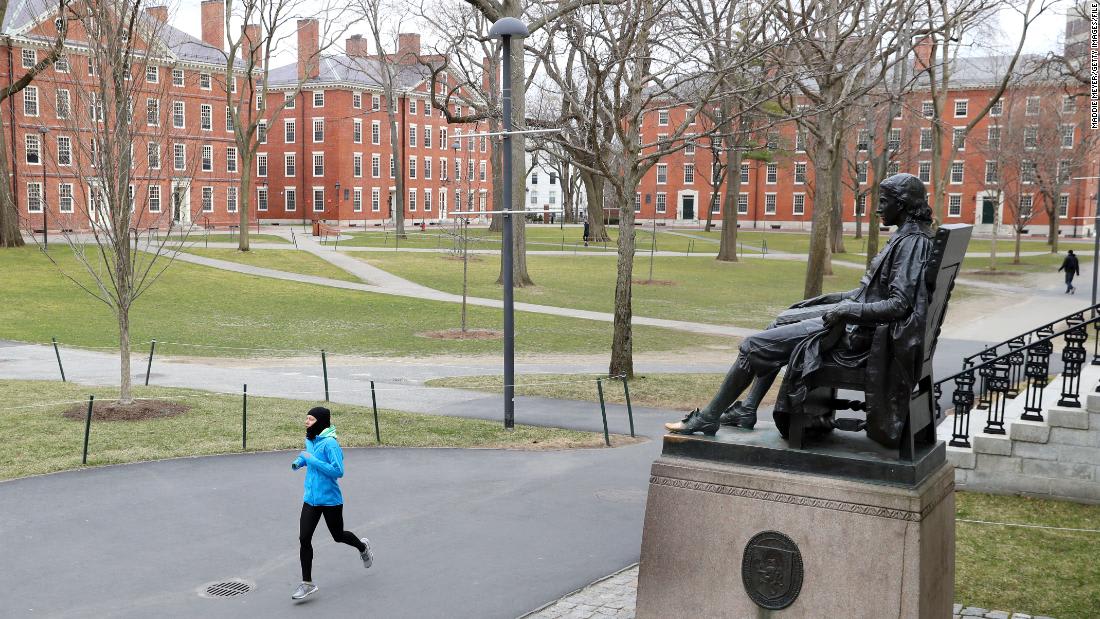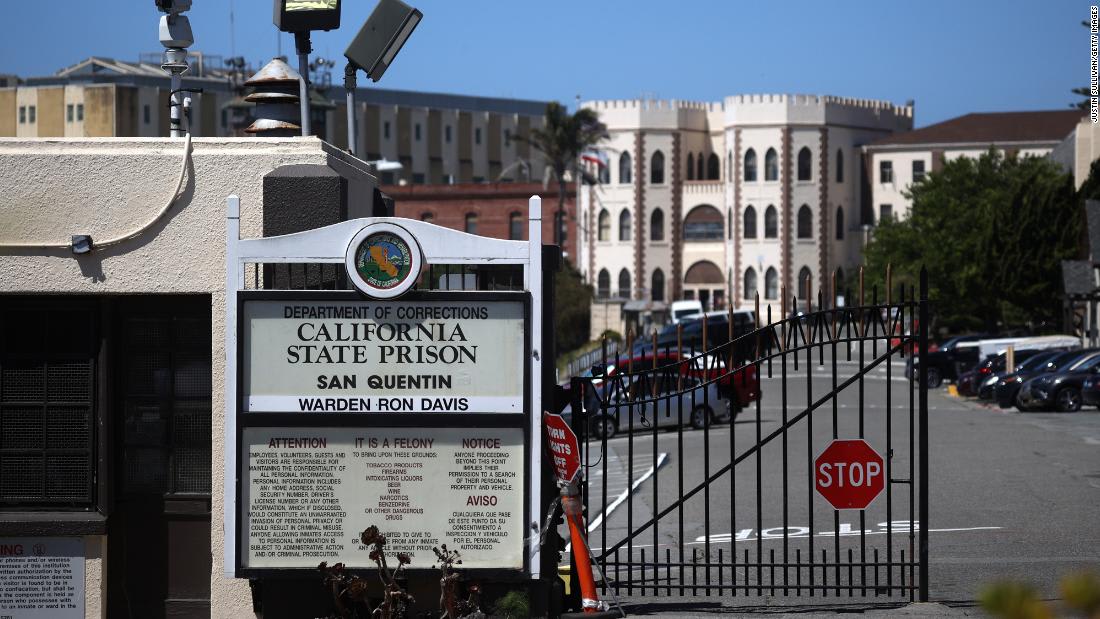US commits $1.6 billion to Covid-19 vaccine maker Novavax
From CNN's Elizabeth Cohen, John Bonifield and Dana Vigue
The federal government's "Operation Warp Speed" Covid-19 vaccine program has given a $1.6 billion contract to Maryland biotech company Novavax. It is the largest federal contract yet awarded to any Covid-19 vaccine company.
It is the fourth company to receive federal funds to conduct large-scale Phase 3 clinical trials and manufacturing of the Covid-19 vaccine.
In May, the government awarded more than $1.2 billion to pharmaceutical giant AstraZeneca for vaccine development. The other two companies that received Phase 3 contracts are Moderna and Johnson & Johnson.
Phase 1 clinical trial data from Novavax on 131 study subjects is expected by the end of the month, Erck said.
He added that Novavax’s Phase 3 trial could begin in the late third quarter of 2020.
Moderna is expected to start its Phase 3 trial later this month. It will involve 30,000 study subjects, some of whom will get the vaccine and some of whom will get a placebo, or an injection that does nothing.
Novavax’s $1.6 billion will allow the company to scale up production of the vaccine in advance of its potential approval, with the aim of delivering 100 million doses by February, Erck said.
WATCH:
Aircrew staff will have take Covid-19 tests in Hong Kong as city records jump in virus cases
From Eric Cheung in Hong Kong
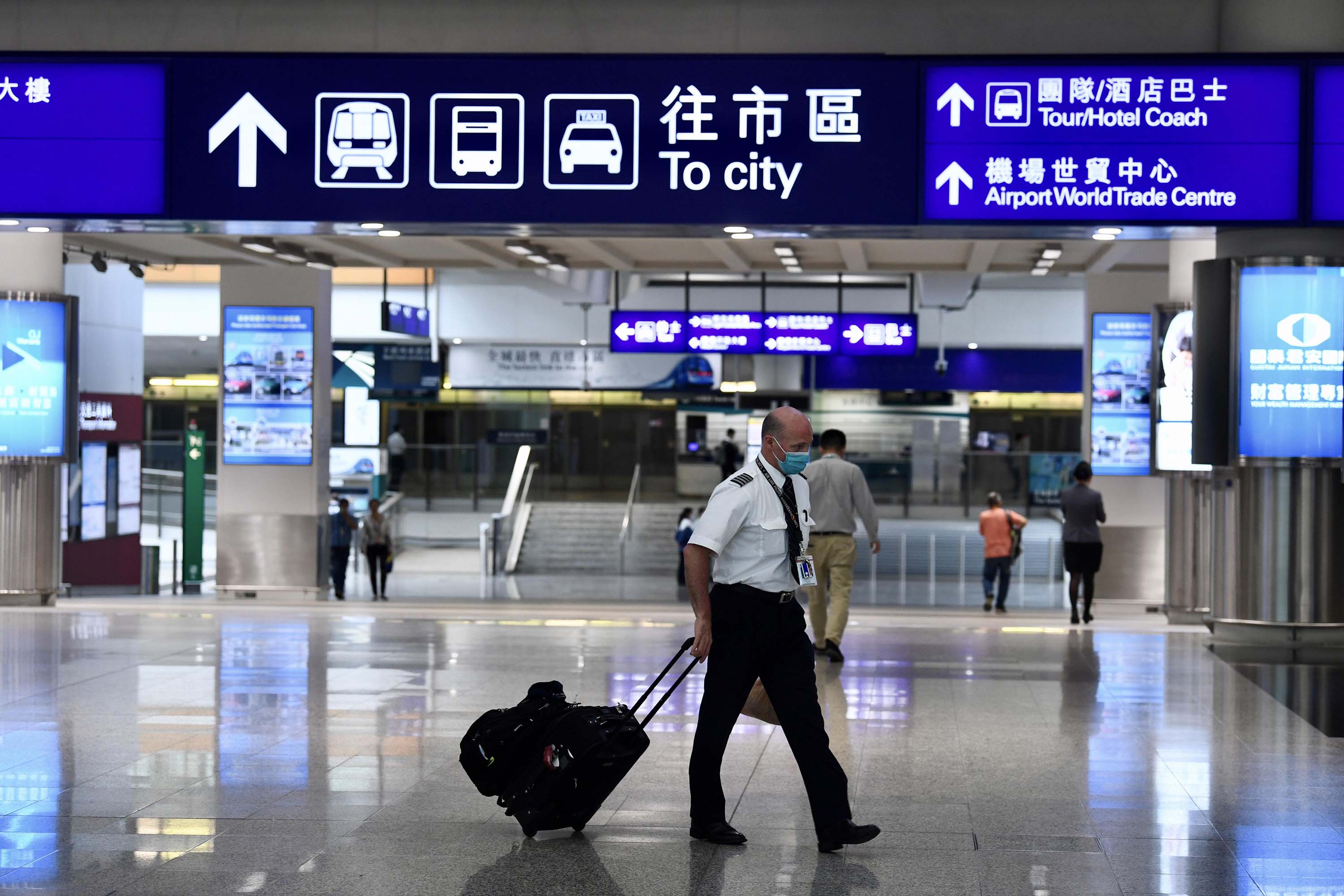 A member of a flight crew arrives at Hong Kong International Airport on May 14. Li Zhihua/China News Service/Getty Images
A member of a flight crew arrives at Hong Kong International Airport on May 14. Li Zhihua/China News Service/Getty ImagesHong Kong will require aircrew members to submit Covid-19 testing samples upon their arrival in the city, the government told a daily coronavirus press conference on Tuesday.
This comes as Hong Kong reported 14 new infections, including nine local cases, on Tuesday, the highest number of local cases recorded since April 8.
While flight crew members are currently exempted from 14-day mandatory quarantine, starting on Wednesday, they will be required to submit deep throat saliva samples when they arrive at the Hong Kong International Airport.
Authorities are still tracing the origins of five of the nine new local cases, according to Cheung Chuk-kwan, director of communicable diseases of the CHP.
Hospitalizations continue to rise in Miami-Dade
From CNN’s Rosa Flores and Sara Weisfeldt
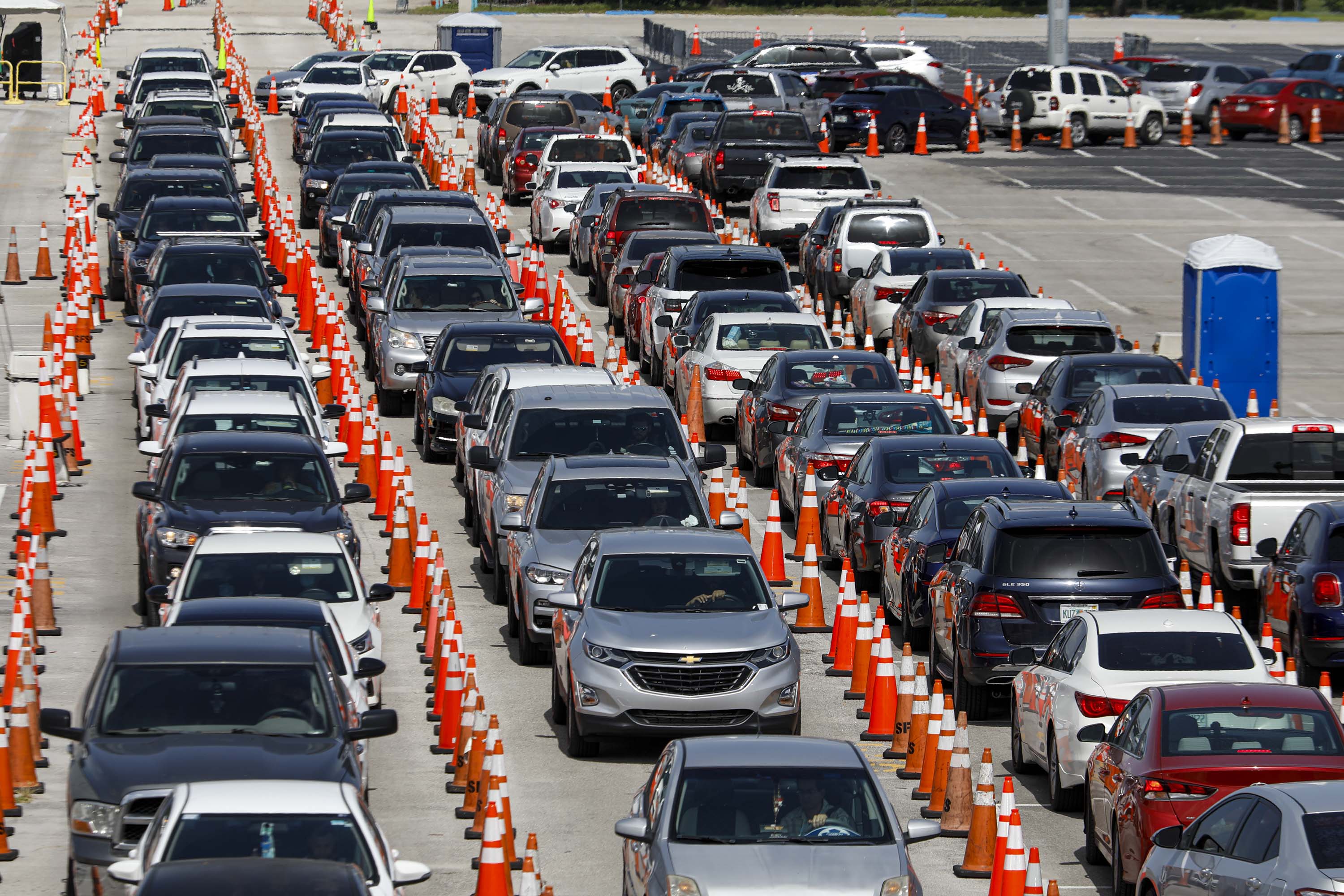 People in their vehicles wait to enter a Covid-19 drive-thru testing site at Hard Rock Stadium in Miami Gardens, Florida, on June 30. Marco Bello/Bloomberg/Getty Images
People in their vehicles wait to enter a Covid-19 drive-thru testing site at Hard Rock Stadium in Miami Gardens, Florida, on June 30. Marco Bello/Bloomberg/Getty ImagesMiami-Dade County has seen a 90% increase in the number of Covid-19 patients being hospitalized in the past 13 days, according to the latest data released by Miami-Dade County Government.
It has also seen a staggering increase in the number of ICU beds being used (86%) and in the use of ventilators (127%).
Meanwhile, Miami's Jackson Health System has seen an 120% percent increase in Covid-19 patients in the past two weeks, according to data posted by the hospital system on Twitter.
On June 20, Jackson Health reported 157 Covid-19 patients. By Monday, they reported 345. Jackson Health System is a nonprofit academic medical system.
The state of Florida does not release the number of current Covid-19 patients in the state. The state only releases the number of available hospital beds, which is currently 14,324 (24%).
As for ICU beds available in Florida, the state reports there are currently 1,265 available, which is 21%.
The 14-day average positivity rate in Miami-Dade County is 23%, according to data released by county government.
EU forecasts deeper recession than previously expected
From CNN's Chris Liakos
The European Union's economy will experience an even deeper recession than previously anticipated in 2020 due to the pandemic, according to the European Commission’s latest economic forecast.
Its economy is now expected to contract by 8.3% this year, compared to the previous forecast of a 7.4% contraction. The Commission anticipates the economy to grow 5.8% in 2021 -- a weaker rate than its previous forecast.
“The economic impact of the lockdown is more severe than we initially expected. We continue to navigate in stormy waters and face many risks, including another major wave of infections," Valdis Dombrovskis, EU Commission Vice President, said in a press release on Tuesday.
Contact tracing is no longer possible across the US South due to virus surges, health expert says
From CNN's Madeline Holcombe
Despite hopes for relief this summer, the US is battling the first wave of the Covid-19 pandemic -- so much so that across the South and Southwest contact tracing is no longer possible, according to a health expert.
The rapid rise in cases is considered a surge, not a second wave, because the infection numbers never lowered to where officials hoped they would, director of the National Institute of Allergy and Infectious Diseases Dr. Anthony Fauci said in a livestream on Monday.
The national case count hits new records almost daily, Hotez said. As of Tuesday morning, more than 2.9 million people had been infected and 130,306 people had died from coronavirus, according to data from Johns Hopkins University.
Read more here:
Beijing reports no new coronavirus cases for first time since wholesale food market outbreak
From Isaac Yee in Hong Kong and Vanesse Chan in Hong Kong
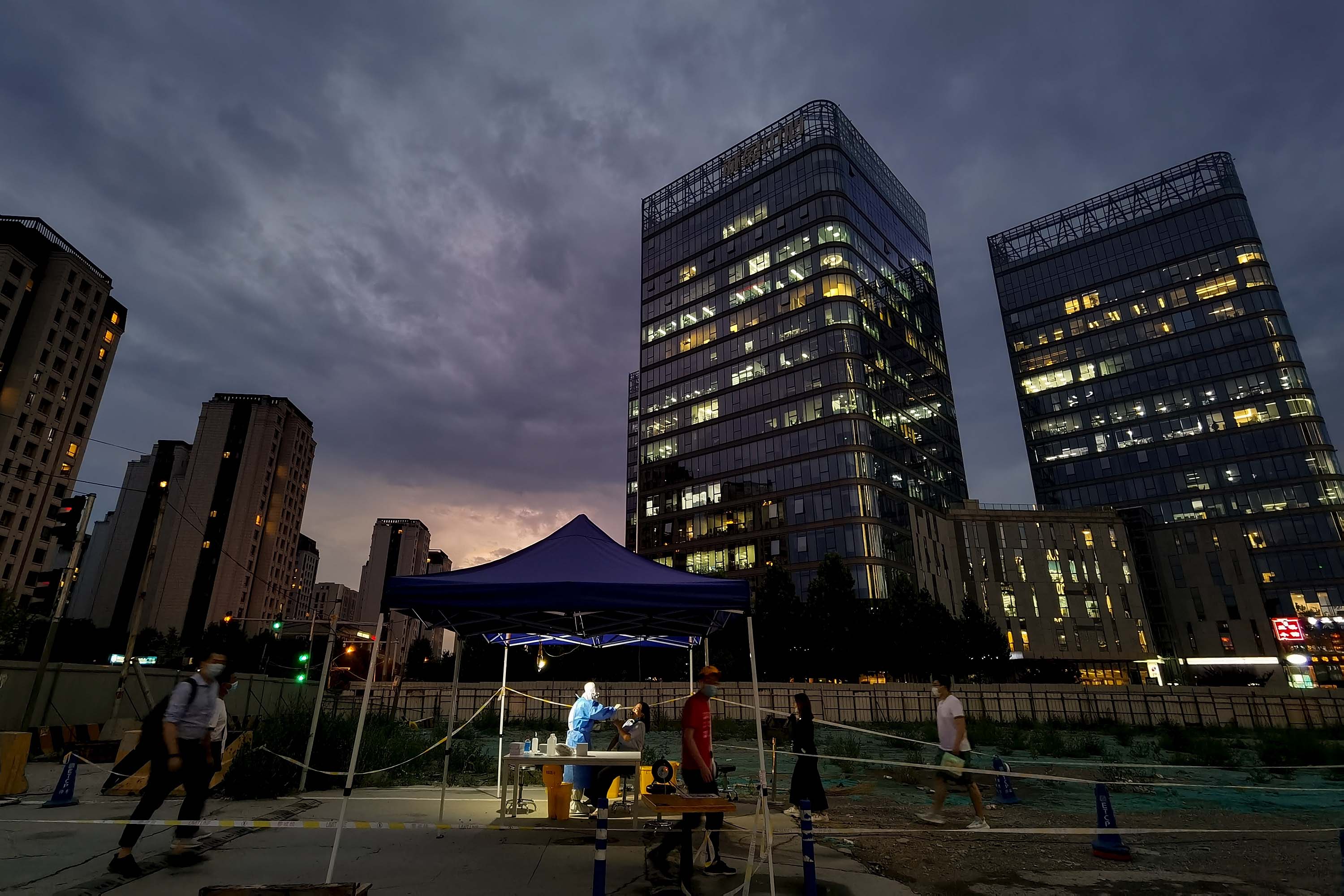 People wait in line at a temporary coronavirus testing station in Beijing, on July 6. Lintao Zhang/Getty Images
People wait in line at a temporary coronavirus testing station in Beijing, on July 6. Lintao Zhang/Getty ImagesBeijing reported zero new coronavirus cases on Monday for the first time since the Xinfadi wholesale food market cluster was discovered on June 11, China’s National Health Commission announced Tuesday.
Eight new imported cases were reported in China, across Shanghai, Liaoning, Sichuan, Inner Mongolia and Guangdong. No new deaths or local cases were recorded. The National Health Commission also reported 15 new asymptomatic cases across the country.
This comes as Beijing authorities announced Monday that over 11 million people in the capital have been given nucleic acid coronavirus tests since the outbreak at the Xinfadi market, according to the state-run Xinhua News Agency.
I got Covid-19 two months ago. I'm still discovering new areas of damage
From CNN's Richard Quest
The cough has come back, without warning and seemingly for no reason; so has the fatigue. True, neither are as debilitating as when I had the actual virus, but they are back.
Like many others, I am now coming to realize that I am living and suffering from the long tail of Covid-19.
I got infected back in mid-April. The onset of symptoms came quickly. I suddenly noticed I was feeling very tired and I had a new cough. I got tested and the morning after I received a phone call from the medical center, I had tested positive for coronavirus.
The virus is like a tornado. When it lands, it swirls through the body, causing chaos, confusion, coughs, wreaking damage to each organ it touches. Some won't survive its visit. For those that do, when it has gone, one surveys the damage to the human landscape and realizes it's much greater than first thought. My symptoms were on the milder side: I never had breathing difficulties, or loss of sense or smell. I was wiped-out tired and I always had "the cough," which has now returned.
I have tested negative for the virus and positive for the antibodies, and my doctor says it won't return. But there are days when I feel that it has.
I am also discovering new areas of damage: I have now become incredibly clumsy. I was never the most lissome person, no one ever called me graceful, but my clumsiness is off the chart. If I reach for a glass, or take something out of a cupboard, I will knock it, or drop it on the floor. I have tripped over the curb and gone flying. I fall over furniture. It is as if that part of my brain, which subconsciously adjusts hand and movement to obstacles it sees, isn't working.
At times there's a sense of mild confusion. The micro delay in a thought, the hesitation with a word. Nobody would notice but me.
For those who have not had Covid, or witnessed the mess it leaves behind, again, I urge you, do whatever you can to avoid this tornado.
It will roar through the body -- kill some on the way -- injure all in its path -- and then when you think "well, thank God that's gone," look around, the damage is strewn everywhere and will be with you long after the crisis has passed.
Read the full story here:
The US has more than 1 million international students. If courses move online only, thousands may have to leave
From CNN’s Caroline Faraj and Richard Allen Greene
The United States had 1,095,299 international students in the 2018-19 academic year, an all-time high and the fourth consecutive year there were over 1 million international students in the country, according to the Institute of International Education.
India was second, followed by South Korea, Saudi Arabia and Canada.
International students who are pursuing degrees in the United States will have to leave the country or risk deportation if their universities switch to online-only courses, Immigration and Customs Enforcement announced Monday.
The move may affect thousands of foreign students who come to the United States to attend universities or participate in training programs, as well as non-academic or vocational studies.
According to the Institute of International Education, here are the top five countries of origin of international students in the US, 2018-19:
China: 369,548
India: 202,014
South Korea: 52,250
Saudia Arabia: 37,080
Canada: 26,122
Read more here:
California prisons replace their top medical officer as coronavirus outbreak worsens
From CNN's Sarah Moon and Christina Maxouris
The top medical officer for California's corrections system has been replaced as the rate of coronavirus infections among the state's inmates continues to increase.
"We are in unprecedented times as we deal with the challenges of the Covid-19 pandemic," California Correctional Health Care Services Receiver J. Clark Kelso said in a statement.
"In order to meet current response needs while also working toward further delegations of medical care back to state control, it has become evident that a reorganization is necessary for long-term sustainability."
More than 2,350 inmates are currently infected -- more than half of whom are inside a single facility, San Quentin State Prison.
According to the state's department of corrections, there are currently more than 1,300 active cases at San Quentin with nearly 70% of those cases popping up in the last two weeks. Six prisoners there have died from the virus, according to state data.
A total of 165 staff members have also tested positive for the virus at San Quentin.
In response to the crisis, the corrections department announced it's reduced its population by almost 10,000 inmates since March -- both by an expedited transition to parole of 3,500 inmates and suspending intake from jails.
Officials have also created spaces in the facility to isolate patients who have tested positive and quarantine those exposed to anyone who has the virus.
Read more here:

 5 years ago
620
5 years ago
620 